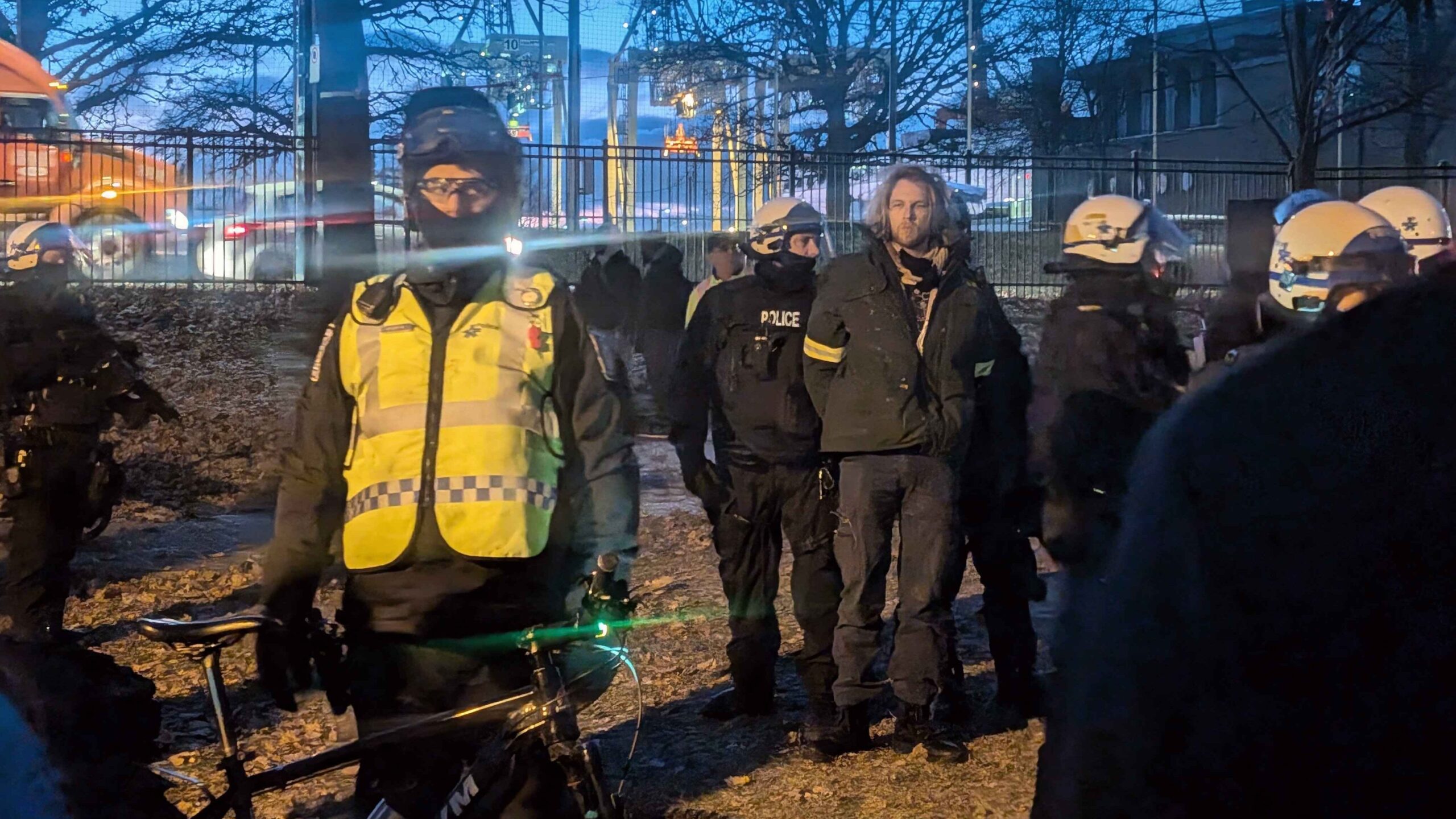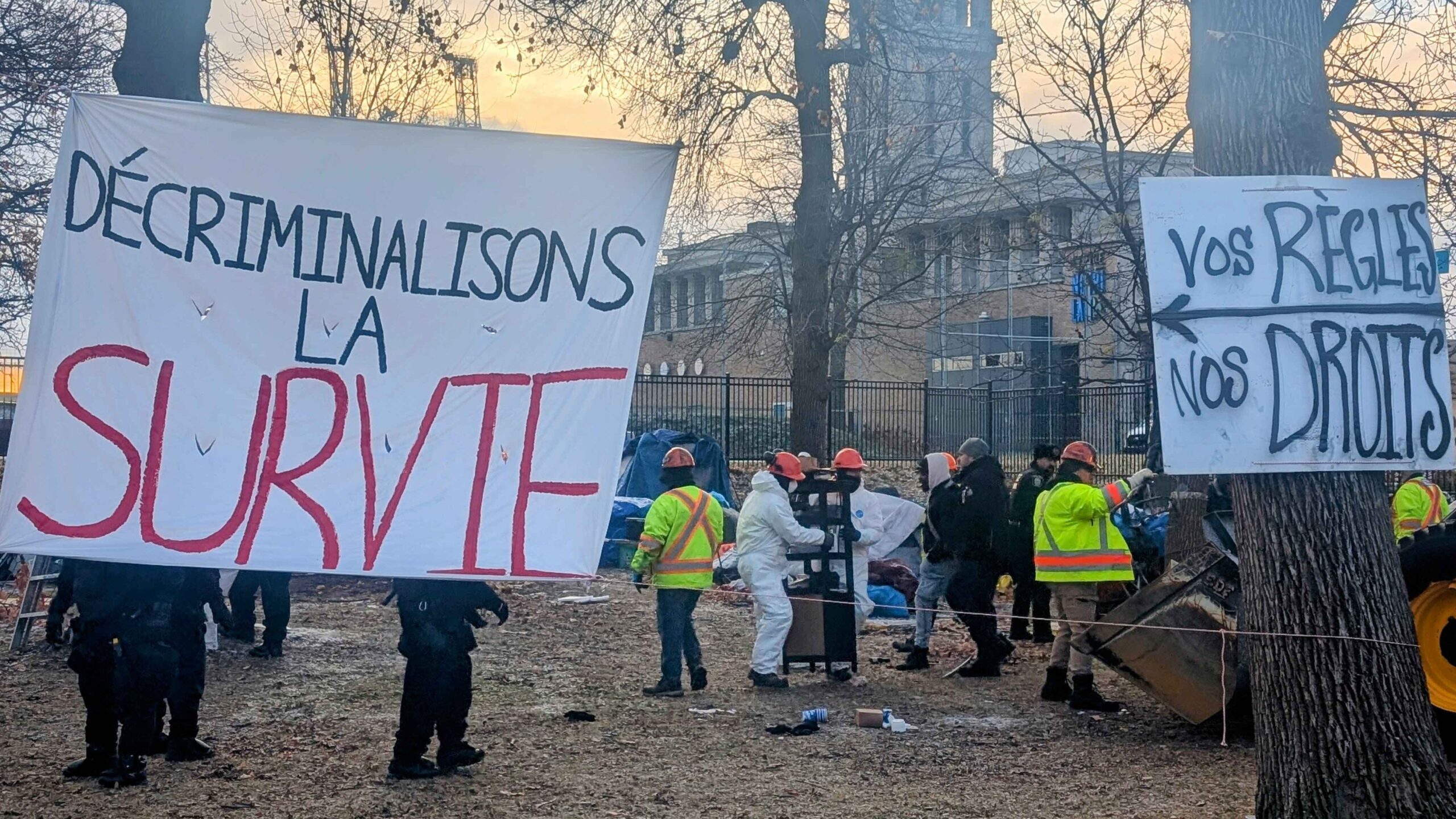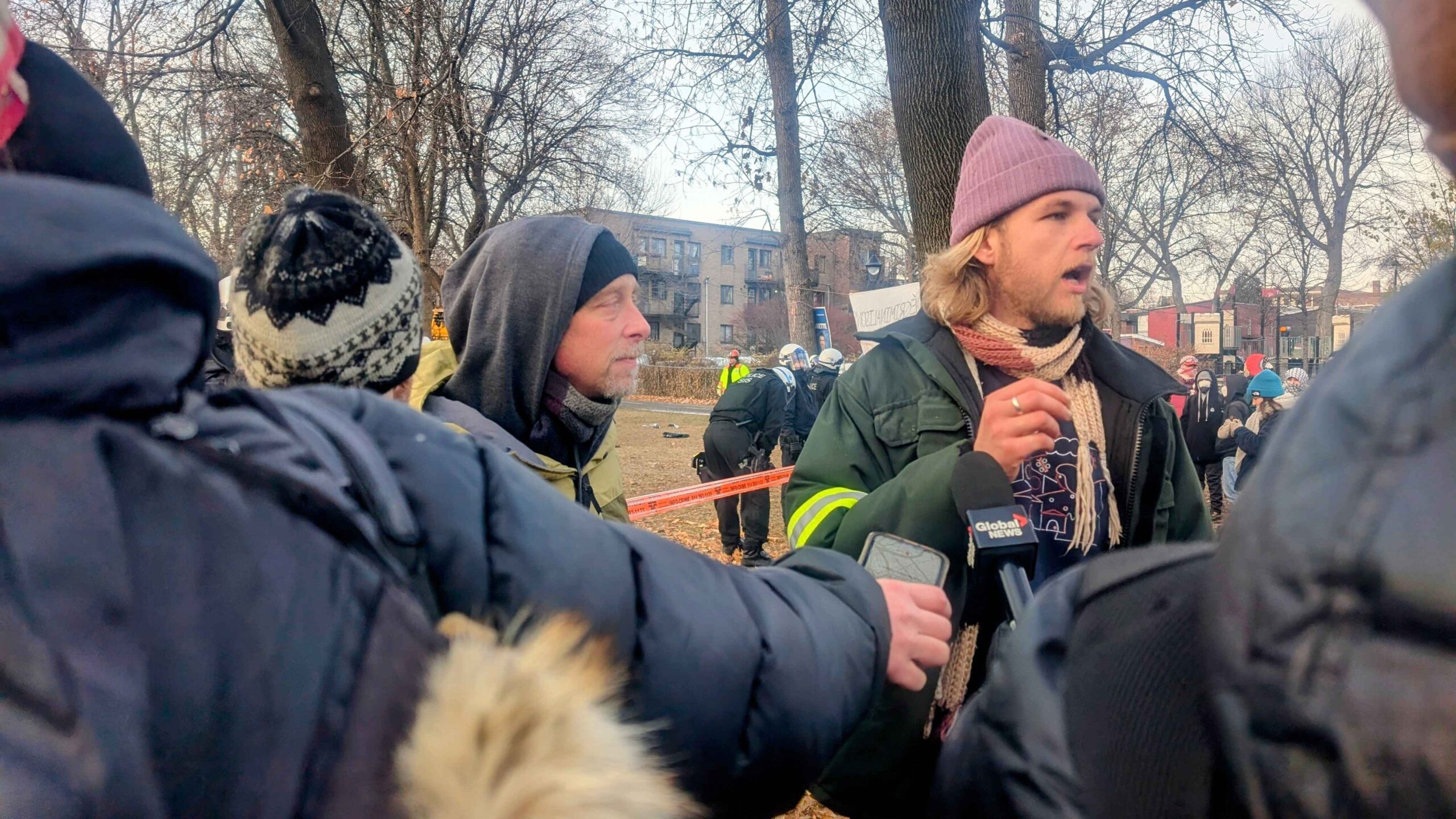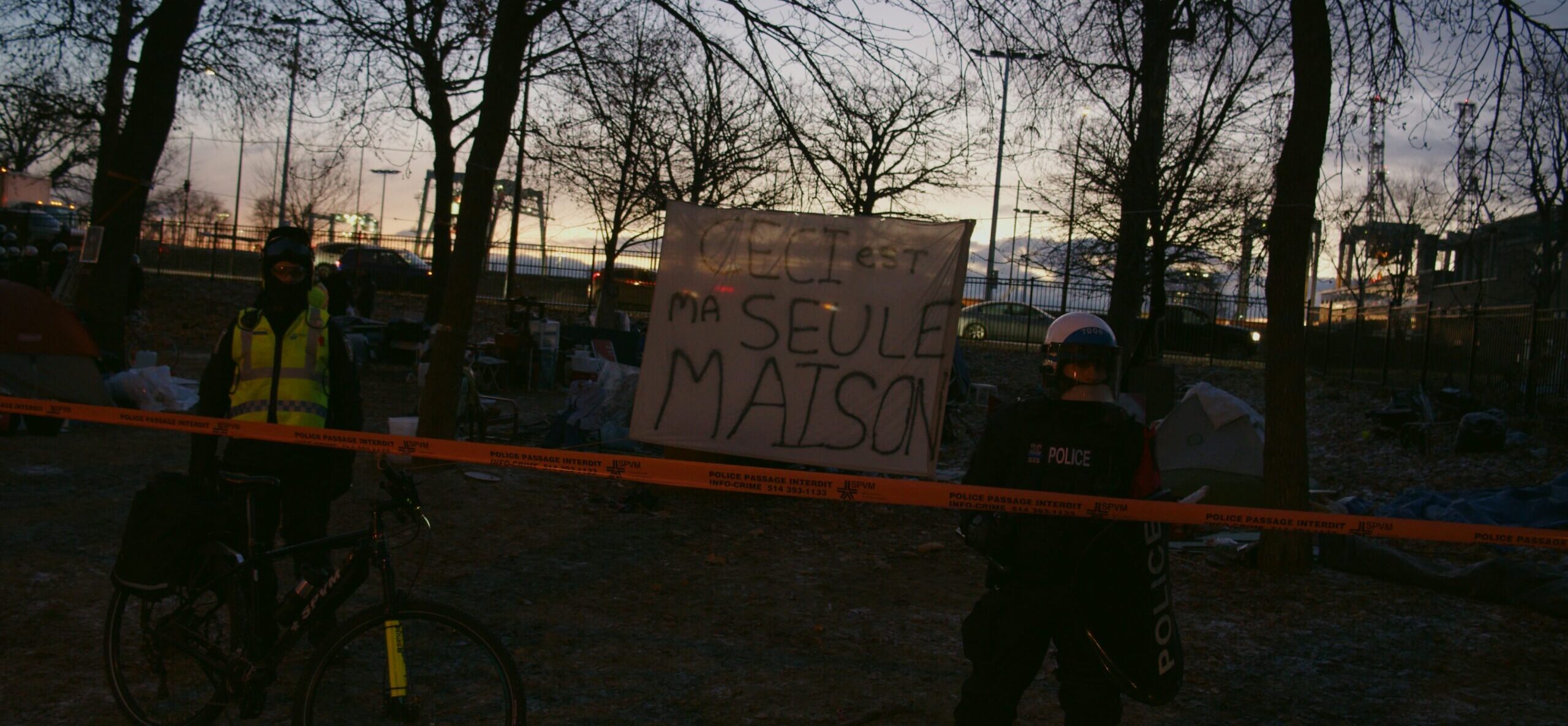Police violently destroyed a homeless encampment in Montreal's east end yesterday morning. Assisted by trucks and excavators, they forced the inhabitants of the few makeshift shelters in and around Parc Morgan to leave. Around 60 demonstrators were present and tried to stop them, but to no avail.
The violence began early, with police forming a security perimeter around the encampment by 6.45 a.m. A community organizer from the BAIL committee, Léandre Plouffe, was arrested while making a speech and posing no threat. The heavy machinery arrived around 8 a.m., to the booing of the crowd.
“At the time, there was a resident of the camp who was outside the line,” Guillaume Groleau of the Refus Local collective told The North Star. The resident wanted his tent back before it was destroyed.
“The police said he couldn't go through. Then he turned around, not knowing what to do. Luckily, there was a community worker behind him who knew him. She was able to speak for him because she's considered legitimate and he isn't.”
“They're presented as if they were subhumans,” adds Éric Groleau, also a member of the collective. “But they're full-fledged citizens.”

The Ministry of Transport of Quebec proceeded with the dismantling following a request from the City of Montreal and the controversial mayor of the Mercier-Hochelaga-Maisonneuve borough, Pierre Lessard-Blais. The latter used the city's nuisance by-law, which prohibits encampments in public spaces. What's more, they accused them of “illegal dumping” of waste.
The problem? The waste in question is often the personal belongings of people living in tents. Evictions are unfortunately commonplace, and the homeless have nowhere else to put their belongings.
“How much did this operation cost?” insists Mr. Plouffe, in an interview with The North Star. “How much did it cost to violently evict them, then destroy their property, their belongings which are also their homes, their only homes? These people are penalized and persecuted because they find imperfect solutions with the means they have.”
According to Guillaume Groleau, the latest count of people living in tents or on the streets is 4600. There are only 1600 beds available in the city. This kind of count is often a gross underestimate.
Mr. Groleau adds: “Instead of dismantling with the excuse of unsanitary conditions or fire hazards, they could go and help. They could go and offer resources for safe heating, and also perhaps help with waste collection, as we do with all other citizens.”

A moratorium on camp dismantling?
The operation was practically over by 9:30 am. Léandre Plouffe believes that this kind of thing is likely to happen more and more, as rents rise and evictions increase in parallel:
“There's a handful of people who make a lot of profit out of this. It's in their interest to continue along this hard line, to violate people who don't conform to this logic of produce, consume and keep their mouths shut.”
He continues: “Who has access to recourse when their rights aren't respected? Who's going to help? No one does. You have to pay. And today, we realize that protesting peacefully to help people, well that doesn't work.”
The BAIL committee activist notes that people feel powerless in relation to the situation. “Nobody knows how to get out of this impasse. I think we need to be able to say what it is. It's capitalism, it's the state.”

“We decided to open up a 'coast-to-coast' market a few centuries ago,” he continues. “And today, we've developed housing in such a way that we don't divide it up so that everyone is housed. What we're asking for is quite simple: a moratorium on the dismantling of encampments.”
Éric Groleau points out that “by dismantling the camp, they hope to make visible misery disappear. But that doesn't make it go away. It simply allows people to live under the illusion that there's no misery because they don't see it.”
“The City of Montreal has obviously decided to attack the homeless instead of homelessness. What we saw today was also that citizens who have houses, who have apartments, came here to support citizens who don't have apartments and who are forced to live in tents.”
He concludes: “The only violence that took place here was the violence of the City of Montreal, which was behind this eviction. Because here, it was completely peaceful.”
- CAPREIT extracts as much money as possible from their tenants
- A Law Written for and by Landlords
- The Legault Government Launches an Attack on Tenants
- A Campaign for a Moratorium on Evictions
- When Politics and Business Violate Tenants’ rights
- Real estate developers reinforce shortage by reducing housing starts
- What effects will the adoption of Québec’s Bill 31 have?
- Housing bill continues to be denounced by unions and housing groups
- Conflict of interest for Quebec’s tenant-landlord tribunal?
- One year later, tenants still standing up to excessive rent increases
- Developers paying pennies to bypass affordable housing requirements in Montréal
- Build, but at what cost to tenants?
- A First Victory for Quebec Tenants Against the CAQ
- “Montreal attacks the homeless instead of homelessness”


